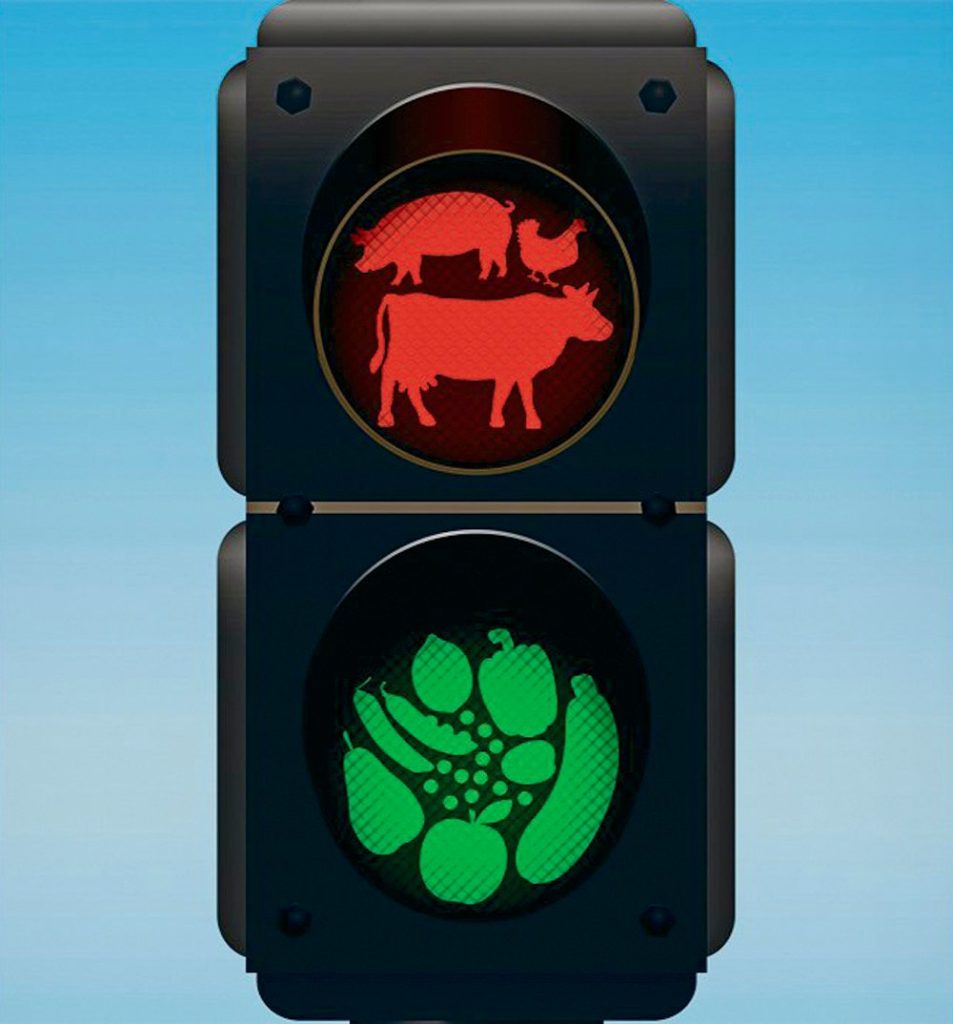International campaign calls for end to food animal use

Glacier FarmMedia – Environmental and animal rights activists have launched an international campaign to halt what they see as the harmful impact of meat, dairy and egg farming on the world’s climate due to methane emissions.
They urge world leaders to negotiate a proposed Plant Based Treaty to begin the transition to food systems that are based solely on plants, said global campaign co-ordinator Anita Krajnc in Toronto.
Why it matters: The proposed Plant Based Treaty is a new tactic by environmental and animal activist groups to halt animal agriculture.
She is the executive director of the Animal Save Movement and helped found Toronto Pig Save. Krajnc was acquitted in 2017 after being charged with criminal mischief in 2015 for offering water to pigs in a livestock truck waiting to enter a slaughter plant.
Events promoting the Plant Based Treaty were slated to be held Aug. 31 at nearly 100 city or town halls around the world ranging from India and Great Britain to at least nine locations in Canada, including Ottawa, Toronto and Edmonton, said a statement by the campaign.
Krajnc pointed to the wildfires this summer that destroyed Lytton, B.C., along with heat waves and drought that affected producers in Western Canada, as examples of why people can no longer delay taking action on climate change.
There is a danger the world’s agriculture sector will eventually collapse if nothing is done about the crisis, she said.
“I don’t think we’re talking about our grandchildren anymore,” said Krajnc, who has been a vegan since 2006.
“I think we’re talking about you and I, like our own lifetimes, are going to see more climate catastrophes and extreme weather, and that’s what was predicted.”
Fawn Jackson, director of policy and international affairs for the Canadian Cattlemen’s Association, said Canada’s beef producers in particular are among the most efficient and sustainable in the world. Not only do they have about half the greenhouse gas footprint of beef producers in other countries, they also manage about 1.5 billion tonnes of carbon in the soil, she said.
Despite using only 33 per cent of Canada’s agricultural land, they provide 68 per cent of its wildlife habitat, she added.
“I don’t think it’s just the beef industry that has to step up its game, but perhaps all of agriculture, we have to step up our game and make sure that we are communicating about how we produce food and how we’re going to be part of the solution for the future.”
Krajnc said the Plant Based Treaty campaign is asking national governments to start negotiations based on the three main principles of relinquish, redirect and restore.
“And the first is don’t make the problem worse. No new deforestation or ecosystem destruction to expand animal agriculture, no new slaughterhouses and so forth. The second one is to redirect from animal agriculture to plant-based food systems, and the third is to reforest the earth.”
The initiative aims to get “10 million individuals, 10,000 organizations, 10,000 businesses and 50 cities to endorse the treaty by 2023, ahead of the global stocktake of the Paris Agreement,” said a statement by the campaign. The stocktake is a process to evaluate the world’s progress in achieving the climate agreement’s goals.
“The Plant Based Treaty draws attention to the effects of meat, dairy and egg farming, which are driving carbon dioxide, methane and nitrous oxide emissions, three major greenhouse gases. Experts say methane reductions are probably the only way of avoiding temperature rises above 1.5 C, and the biggest opportunity to slow warming between now and 2040.”
The initiative is modelled on the proposed fossil fuel non-proliferation treaty, which aims to end all new exploration and production of coal, oil and gas as part of a transition to clean, renewable energy, said Danny Harvey, a professor in the Department of Geography at the University of Toronto.
He was lead author of the fourth and fifth assessment reports for the United Nation’s Intergovernmental Panel on Climate Change. The sixth assessment report, which was released Aug. 9, said the world is close to runaway global warming, boosting the severity of extreme heat waves and drought.
United Nations Secretary General Antonio Guterres called the report a “code red for humanity,” warning the world “there is no time for delay and no room for excuses.”
Harvey estimated animal-based agriculture may emit as much as 20 to 25 per cent of total world greenhouse gases, depending on how it’s calculated using factors such as methane, making it what he described as the largest single source.
Others, such as researchers at Oxford University say that most models overestimate the climate impact of methane and have proposed a new metric that counts the climate impact of methane, which degrades quickly compared to other greenhouse gases, versus a focus on bulk emissions.
However, Jackson said Canada’s beef producers continue to make large strides in reducing their greenhouse gas footprint through things such as improved genetics and feed, as well as animal care practices.
“All of these factors are what add together to give Canada one of the lowest greenhouse gas footprints in the world per kilo of beef produced.”
This article was originally published at The Western Producer.
Source: Farmtario.com

